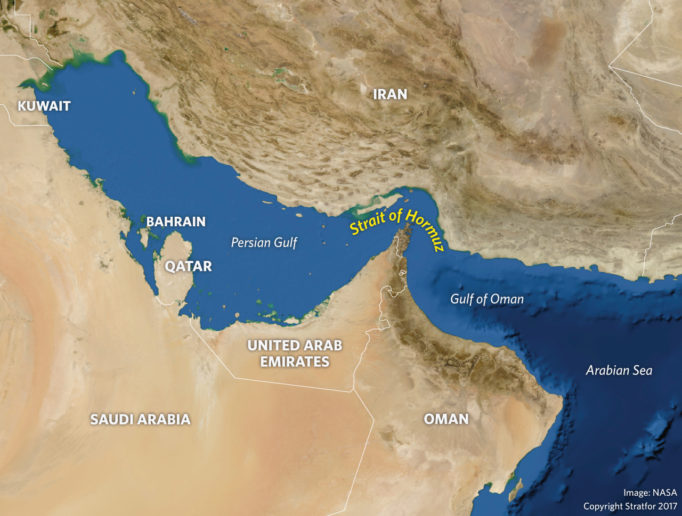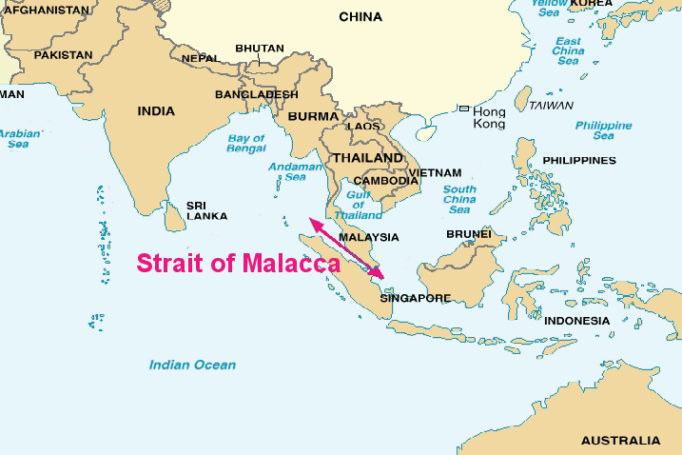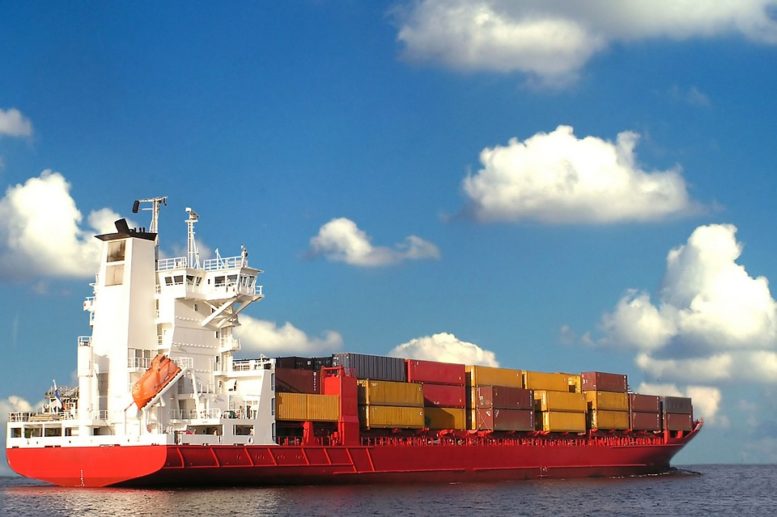Recent events in the West Philippine Sea as well as other incidents involving shipping lanes, ferry crossings/sinkings, oil discharges into open water, and attacks on vessels, should have brought the attention of the global maritime industry. In monitoring the news, I see it has not.
This spiked my curiosity as to why and what would happen if global sea lanes were disrupted for an extended period of time. I focused on the eastern global hemisphere.
What I found, in multiple areas, were two areas of potential importance: the Strait of Hormuz and the Malacca Strait.
The Strait of Hormuz links the Arabian Gulf to the Gulf of Oman. It is only 21 miles wide and 20% of global oil is transported through the strait averaging 14 tanker ships a day.

Recent events involved two Japanese vessels suffering explosions that were blamed on Iran. Iran has denied any involvement although in the recent past Iran has threatened to close the Strait of Hormuz to any traffic, flexing its muscle to the world. In retaliation to the accusation, Iran shot down a U.S. unmanned drone monitoring the area. Tensions in the area remain strenuous but stable. There have been many multiple country incidents in the sea lanes traversing the Strait of Hormuz. This could pose an enormous impact in Asia since much of the Strait of Hormuz traffic heads towards the Malacca Strait.
Without a doubt, the Malacca Strait is the most important sea lane on the globe. It is 550 miles long and only 2 miles wide at its narrowest point, passing Indonesia, Malaysia, and Singapore. It connects the Indian Ocean with the Pacific Ocean through the West Philippine Sea, China Sea, East Philippine Sea and Java Sea, linking all Asian countries for energy, durable goods, and product materials for all Asian markets before heading further to the East towards Oceania.

There are approximately 94,000 vessels that transverse the Malacca Strait annually. Much of the traffic involves the vessels traversing from the Strait of Hormuz. Terrorism, Piracy, Human Trafficking, and Shipwrecks are an unfortunate legacy of the Malacca Strait.
Any disruption to the orderly movement of vessels through the Malacca Strait will have significant impact on the countries bordering the West Philippine Sea, the China Sea, as well as further to the East.
The recent militarization of Islands in the West Philippine Sea pose another point of concern as that adds another potential area of disruption to the orderly flow of maritime traffic through the area. It is understandable that many are concerned regarding the intrusion, with a degree of aggression, into the territorial sovereign waters of the Philippines with militarization of some islands. This is a major Philippine concern.
It would be prudent to have a global, consorted and comprehensive, expanded view of the developing maritime issues against the related global impact should one entity gain control of the most important waterways for commercial shipping. Under this scenario, any disruption in the global maritime traffic will have significant impact on all nations.
About the author: Timothy Muelder is a retired Facilities Manager of the U.S. Department of State.
